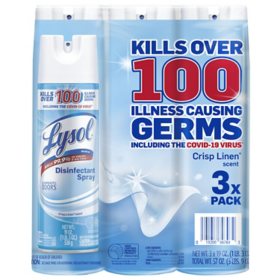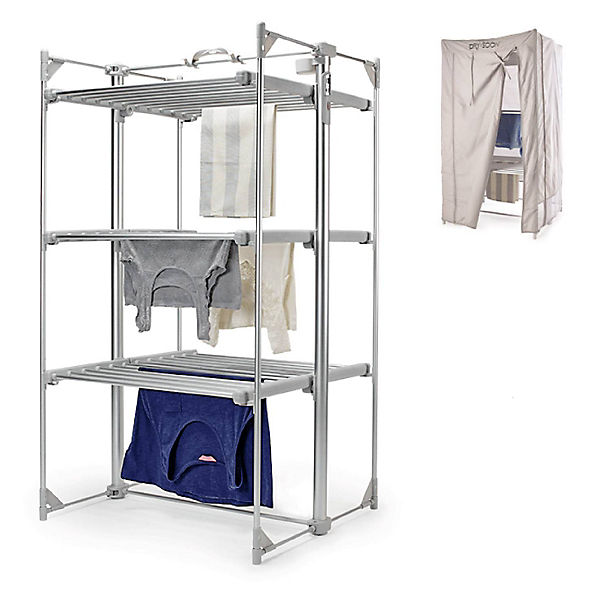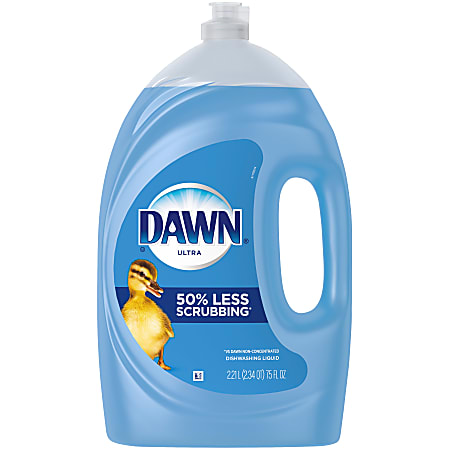Lysol Disinfectant Spray, Crisp Linen Scent (19 oz., 3 pk.)
Helps protect you and your family from harmful germs. Hospital-grade disinfectant that kills 99.9% of viruses, including norovirus, which causes the stomach flu. Use to disinfect frequently touched household surfaces like doorknobs, diaper pails, remote controls and light switches.
Lysol Disinfectant Spray is an EPA-registered disinfectant that kills more than 99.9% of illness-causing bacteria and viruses on environmental surfaces in your home. Unlike other sanitizing products that only kill bacteria, Lysol Disinfectant Spray even kills nasty viruses that can cause illnesses such as the flu, the common cold and infectious diarrhea among young children. It also works to control the growth of mold and mildew, the most common type of allergens, on surfaces like plastic shower curtains. Mold spores are among the most common types of allergens in your home all year long, so killing mold and mildew can help to reduce your exposure. No wonder Lysol is the #1 brand recommended by pediatricians. Scents may vary by Club and season.
Policies & plans
Specifications
- Kills 99.9% of germs, bacteria and viruses
- Kills 99.9% of bacteria on soft surfaces as a spot treatment
- Kills 99.9% of odor-causing bacteria
- Use in every room of your home, every day
- Disinfects household surfaces and freshens air
- Clean Linen scent
Assembled Country
Component Country
Additional information
| Warranty | This product is covered by the Sam's Club Member Satisfaction Guarantee. |
|---|






by Mary
came as advertised 3 cans shrink wrapped. Not loose as before.
by Ekz
After reading the reviews I was a little nervous to order but I’m glad I did. Sometimes you can’t base you decision off these reviews. My package arrived within 3 days with no broken tops. I just wish we weren’t limited to the amount, at least allow us the ability to buy 2 packs.
by Alfee
Glad to finally get some Lysol!!
by Javier
love this product.
by Pivotal
Great product for sanitizing your home, or office.
by Luv
Trusted disinfectant. Nice scent. Glad to find the produce available again.
by Tanky
Great price with this virus out there i’m glad that it is a big can and here has a good price on a 3 pack.